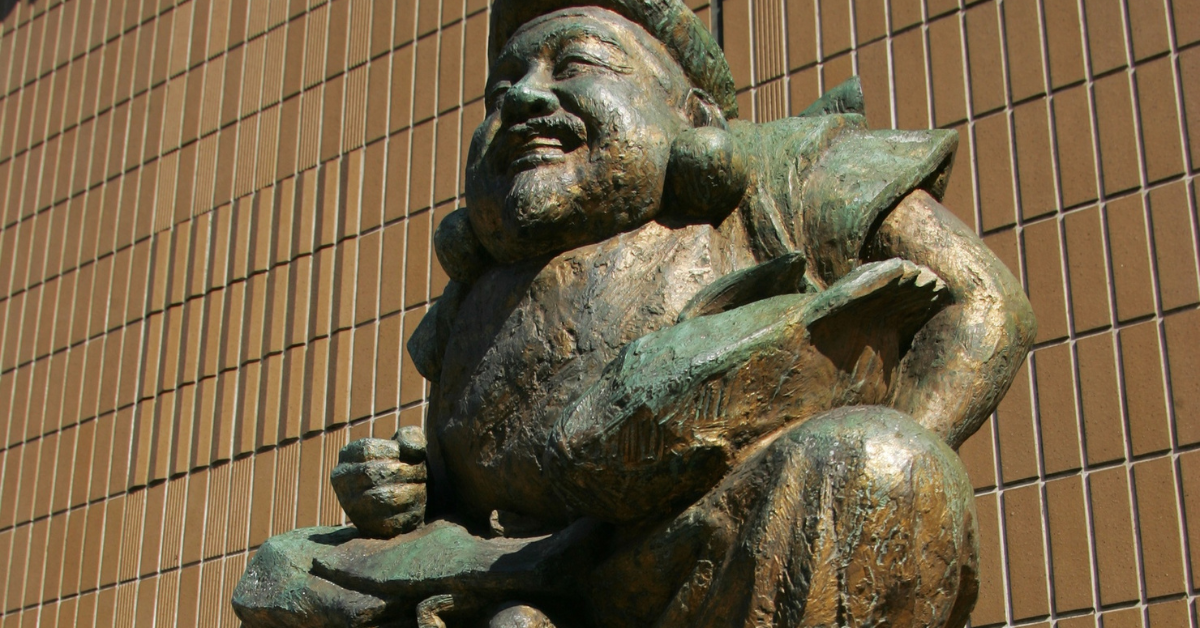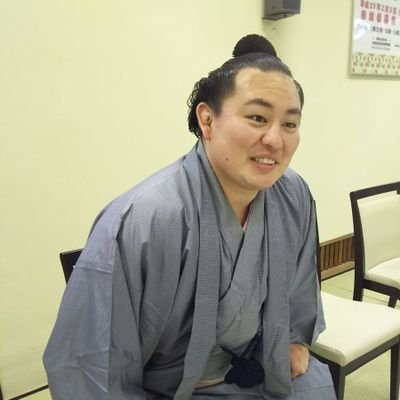In the world of sumo, the word “ebisuko” is often used. It reflects not only wrestlers’ physique and eating habits but also Japanese beliefs about fortune and cultural values.
Origins of Ebisuko
The word “ebisuko” is rooted in Japanese tradition and culture. Its formation can be broken down as follows:
| Element | Explanation |
|---|---|
| Ebisu | Refers to Ebisu, one of the Seven Lucky Gods. Ebisu is depicted with a plump, prosperous body and is a symbol of abundance and good fortune. From this image, the meaning expanded to describe “chubby people” or “big eaters.” |
| Ko | A Japanese suffix used to denote people or characteristics, as in “-ko” or “-kko.” It carries a nuance of familiarity or affection. |
When combined, “ebisuko” came to describe a person with a hearty appetite or a wrestler with a naturally large build. Beyond appearance, the word reflects the Japanese cultural value of fortune and prosperity.
Meaning of Ebisuko in Sumo
Sumo is Japan’s national sport, and wrestlers are expected to have both size and strength. Training alone is not enough; wrestlers must also eat heavily to grow their bodies. The word “ebisuko” became established as a way to describe wrestlers with ideal physiques and strong appetites.
| Feature | Example |
|---|---|
| Physique | Large bodies built through rigorous training and heavy meals, symbols of a wrestler’s power. |
| Appetite | Eating heartily is admired, and such wrestlers are often called “ebisuko.” |
| Auspiciousness | Linked to the cheerful image of Ebisu, symbolizing prosperity and happiness. |
The term does not simply mean “fat.” In sumo, it is a compliment celebrating an ideal wrestler’s image.
The Appeal of Ebisuko for Foreigners
“Ebisuko” is a uniquely Japanese word that carries cultural nuance and warmth. For foreigners watching sumo for the first time, the size of the wrestlers and their eating habits can be surprising and fascinating. Knowing this term allows for a deeper appreciation of the sport.
Ebisu, one of the Seven Lucky Gods, is also widely worshipped as the deity of fishing and business prosperity. Therefore, the word “ebisuko” conveys not only physical size but also the idea of bringing good fortune. Sharing this perspective helps foreigners better grasp the depth of Japanese culture.
Ebisuko and Food Culture
Inside a sumo stable, wrestlers’ bodies are built around meals, especially “chanko-nabe” (a hotpot dish). Wrestlers consume astonishing amounts of food after training, and this dining style perfectly embodies the idea of “ebisuko.”
| Meal Characteristic | Explanation |
|---|---|
| Chanko-nabe | A nutritious hotpot made with meat, fish, and vegetables, serving as wrestlers’ staple food. |
| Large quantities | Wrestlers often eat several servings at once, which is why they are called “ebisuko.” |
| Role of meals | More than nourishment, meals are essential routines for developing both body and spirit. |
In sumo, eating is as important as training. The word “ebisuko” therefore represents effort, discipline, and lifestyle, not just appetite.
Ebisuko in Literature and Rakugo
The word “ebisuko” appears not only in sumo but also in Japanese cultural expressions such as literature and rakugo (comic storytelling). In the Edo period, it was used to humorously describe gluttonous characters.
| Field | Usage |
|---|---|
| Rakugo | Used for humorous portrayals of people with hearty appetites. |
| Novels | Sometimes used to describe hardworking rural youths. |
| Folklore | Eating well was seen as a sign of health and prosperity, so the term carried positive meaning. |
Thus, “ebisuko” is not only a sumo term but also a word deeply rooted in everyday Japanese culture and folk traditions.
Conclusion
“Ebisuko” is a word created by combining the plump image of Ebisu, one of the Seven Lucky Gods, with the affectionate suffix “ko.” In the world of sumo, it refers to wrestlers who eat well and grow large, and it is used with praise and affection. It is also tied to food culture and folklore, making it an auspicious and respected term in Japanese society.
For beginners and foreigners, learning the word “ebisuko” is not just a way to understand sumo better but also a way to appreciate the depth and richness of Japanese culture. Watching wrestlers eat heartily and thinking “that’s truly ebisuko” makes the experience of sumo even more meaningful.





コメント